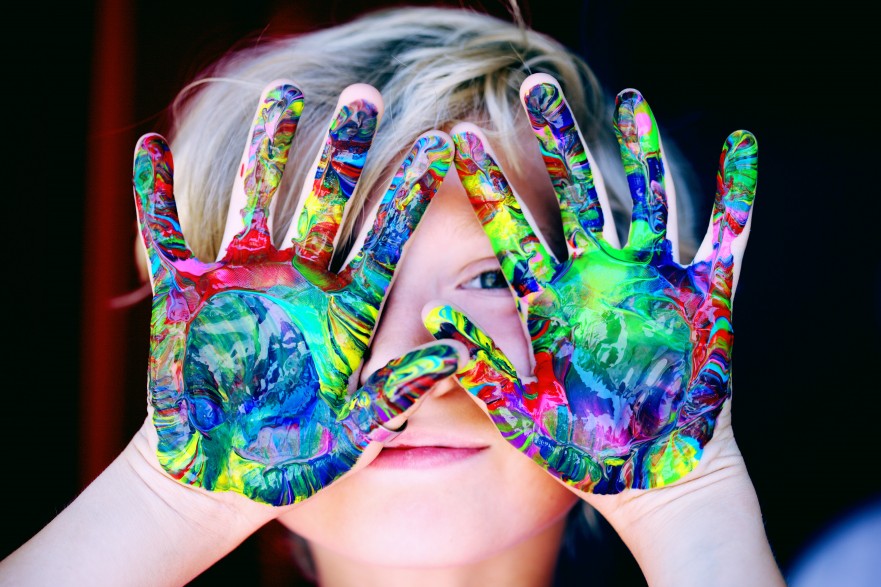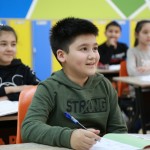When you’ve been in education long enough, you learn a valuable lesson: Adults will frustrate and disappoint you far more than any kid will. Right now, I am really disappointed in a lot of adults.
We are being flooded with messaging decrying students’ learning loss. It’s everywhere. It’s being talked about on local and cable news. It’s being written about in national publications. Politicians are using it as a talking point to advance their agendas. Publishing companies are using it to sell programs. It’s the sole topic of district professional development meetings.
I’m tired of hearing it. More precisely, I’m tired of the kids hearing it. Our students have made it through an entire year of a pandemic. They’ve experienced loss, fear, and uncertainty and they’ve handled it better than many of the adults. They have endured it with grace, perseverance, and adaptability.
How do adults acknowledge them for their compassion and grit? They talk about them in the third person, as if they aren’t there. Formulating a tale about their learning as if the children aren’t listening and aren’t absorbing every word. Pushing narratives about learning loss and achievement gaps. Some have even gone so far as to claim the kids will be economically crippled for life.
After the year our children have lived through, one would think we would be heaping praise and recognition upon them. Instead, adults are sending kids the message that they are in some way faulty, substandard, or ill equipped.
I realize the message of learning loss and defective kids is aimed at educators, not children. There are motives behind the narrative that go beyond our children and their learning.
But, the children are listening and the message they’re receiving is defeating and discouraging. It’s dismissive of all they have learned and accomplished during a global pandemic.
I want to rewrite the script and rightfully focus on what kids have learned this year. Students deserve to hear stories of what they have accomplished, because I can tell you they have accomplished a lot.
In my quest for a student-centered perspective, I decided to go straight to the source. After all, who would know best about what students have learned during the pandemic than the students?
I questioned a sizable group of students ranging in age from Grade 2 to Grade 11. What follows is their firsthand account of their learning since March 2020.
Despite some of the rhetoric you might hear about schools being closed and teachers not teaching, almost every student explained something they learned in school during remote learning.
Multiple students talked about the different math strategies they’ve learned. Maddie, a 2nd grader, said she’s learned so many new things she didn’t even have time to name them all! Maryn, a middle schooler, said she learned about the Civil War and discovered she is very interested in that period of American history. Natalie, also a middle schooler said she’s learned more about grammar this year than she has ever learned. Other students named geometry, history, and reading as areas of new knowledge. The bottom line is the kids are learning and they can tell you what they are learning. They just need the adults to ask them and then listen.
Beyond traditional academics, most of the students described learning a new hobby or skill during the pandemic. They were quick to point out pursuing new interests was possible because of the change in lifestyle the pandemic brought. Simply put, they were afforded the time to do it.
Giselle, a high school sophomore, learned how to do origami and make blankets from yarn. Several students mentioned learning to cook and bake this year. This group of kids also learned to skate, do back handsprings, make jewelry, draw, and paint. Several kids said the last year provided them time to return to an old interest. For example, one student returned to playing piano and several said they read for pleasure now. The opportunity to explore new interests is invaluable. It will benefit these kids for the rest of their lives.
The most profound affirmations of learning came when the students described life lessons from the last year. Almost all of them said they realized how important family and loved ones are. They said they learned to not take anything for granted (even the young ones said this).
The preteens and teenagers described becoming more mature. Additionally, they learned independence and how to be alone and enjoy their own company (I didn’t learn that until my twenties).
Gratitude was repeated often. Remarkably, they said the experiences of the past year taught them to be more grateful. How I wish they could share that lesson with some of the adults.
Eighth grader, Ryann, said she has learned perseverance and to make tough decisions about her self-care. Those are remarkable lessons to learn at such a young age.
Perhaps the most thoughtful comments were in relation to the kids’ own self-reflections and self-discovery. Many of them said they learned more about themselves, their beliefs, and their personalities in the past year. They developed values and ideas about the type of people they want to be. I am deeply moved by the self awareness of this group.
My biggest takeaway? These students fill me with hope, encouragement, and a sense of optimism. A difficult and unprecedented year will not constrain them or prevent them from future achievements.
The kids will be okay. They just need the adults to realize it.
The kids deserve to be defined by their accomplishments and not by some arbitrary and ill-conceived notion of “learning loss”. Our students have easy access to cable news and social media. They hear the narratives being created about them and their learning. As adults, what message do we want them to hear?
I propose re-writing the script. We, as adults, are the ones responsible for the narrative. Let’s change it.
We should celebrate and highlight what our children have been able to accomplish in the last year. Because the truth is, the message matters. We need to send the message that because of their experience we see them as better humans, not defective students.
High School Junior, Skye, says:
I’ve learned how to cope with your given circumstance and adapt to changes the best you possibly can. I’ve learned we are more alike to everyone in our surroundings than we could have ever imagined. But most importantly, I’ve learned more about myself in the past year, which has really allowed me to express my true interests and hobbies and not conform to standards obliviously created by society.
How can anyone call that “learning loss”?
Photo credit: Sharon McCutcheon at Pexels










Comments 4
Thank you so much for this blog! You are so right. Students have learned SO MUCH this past year. It may not show up on a standardized test, but it’s deep and profound learning. I would love for us to look at the data of the past 20 years since we have started high stakes testing, let’s look at the data of it’s effectiveness and see what changes need to be made….I would bet that it doesn’t include more testing.
Shouldn’t we look at the learning loss of eliminating life skills classes like home economics and shop, cutting fine arts offerings, limiting technology use to testing skills?
I agree with you. We are always busy telling kids what they do not know, what they have not learned and that they are at a deficit. Time to start telling them from a strengths based place what they have gained, and stop focusing on loss.
My students have learned compassion and teamwork this year. They have learned to adjust, to communicate, and to celebrate. This is absolutely not a loss of learning.
Pingback: Ready To Learn - STORIES FROM SCHOOL AZ